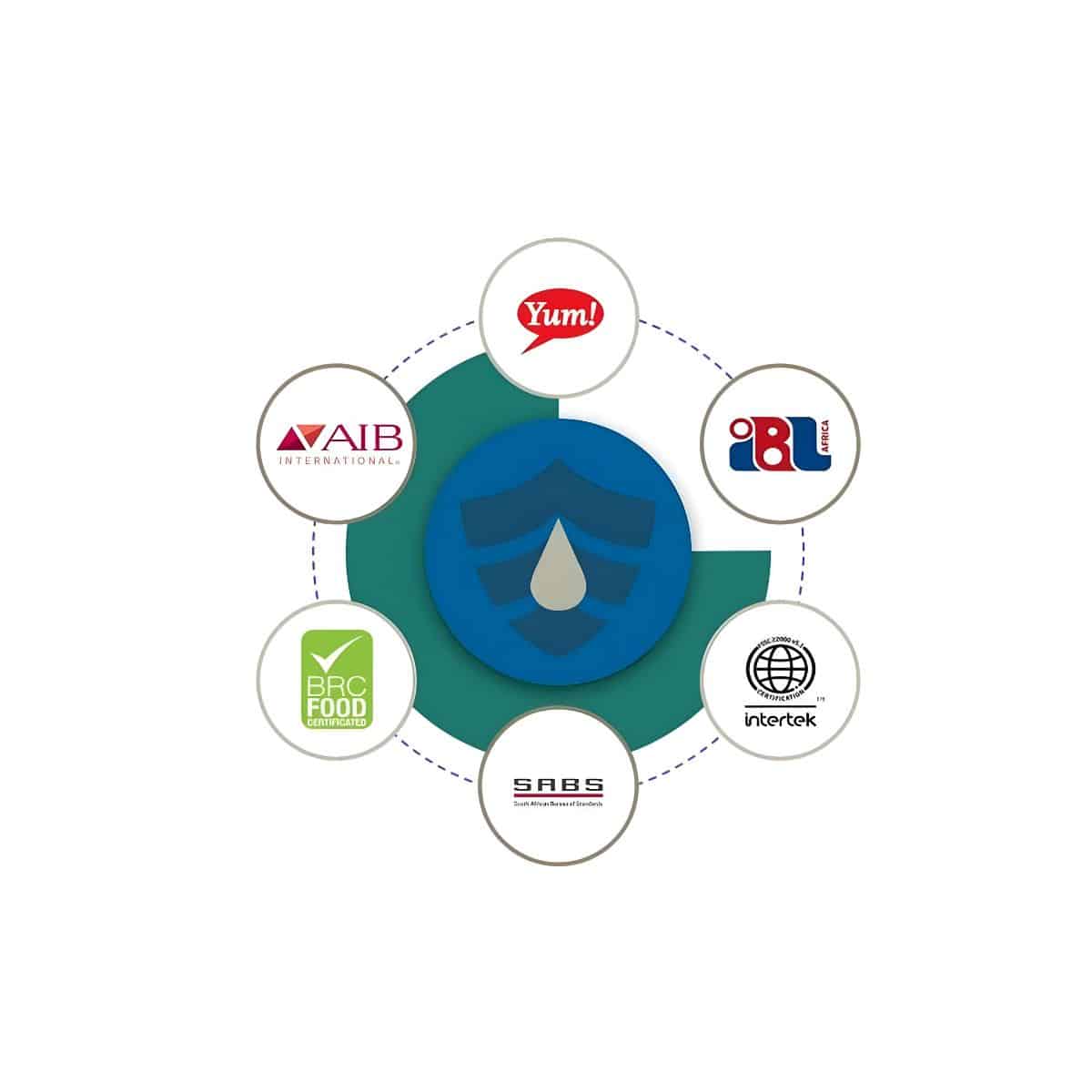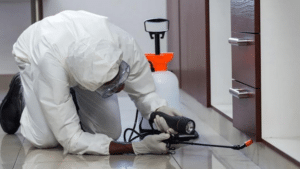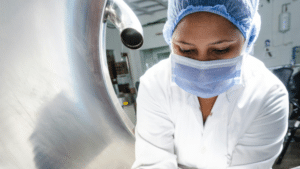Ensuring food safety is paramount for any business involved in the food industry. All South African restaurants, supermarkets, caterers, and companies engaged in manufacturing, handling, and supplying food must comply with stringent food safety rules and regulations. Local governments can perform unannounced inspections at any point during food production and distribution. As a result, businesses regularly undertake food safety audits to ensure they are always prepared for these random inspections.
What is a Food Safety Audit?
A food safety audit is a systematic, independent, and documented activity in which objective evidence is collected and evaluated to determine if a food safety system is suitable and effective. Food safety audits are performed across the entire food industry, from primary production through to retail, to verify that food safety systems are in place and functioning effectively, ensuring that all food products meet the required safety standards and regulations.
Food Safety Standards Explained
Food safety standards are essential for maintaining the safety and quality of food products throughout the supply chain. Here, we explore four common types of food safety audits that Advanced Cleaning Services adheres to and surpasses.
International Britannia (IBL)
International Britannia (IBL) specialises in bespoke, niche Food Safety Management System Auditing and technical support services. They cater to retail clients in Africa and the UK, as well as large multinational manufacturing groups. IBL’s consultative-based auditing assists in rectifying non-conformances and is tailored to meet the specific needs of various clients. Their expertise includes setting up niche protocols that cover a wide range of brand integrity issues. The industries they cater to include food manufacturing, packaging, and retail stores, ensuring thorough and customised food safety audits.
FSSC 22000 | Intertek
The FSSC 22000, provided by Intertek, is an internationally recognised standard designed to address food safety hazards and incidents at every stage of the food supply chain. This standard integrates ISO 22000, including HACCP, sector-specific PRPs, and additional FSSC requirements, offering a comprehensive certification programme. Intertek’s extensive support through its Total Quality Assurance ensures that organisations meet the highest food safety standards. This certification is suitable for food processing, packaging, and distribution industries, making it a critical component of comprehensive food safety audits.
STAR | Yum! (KFC)
The STAR standard, developed by Yum! Brands (known for KFC, Pizza Hut, and Taco Bell) focuses on maintaining food safety and quality through innovative technologies and comprehensive assessments. The STAR standard is particularly relevant for restaurants, fast food chains, and food suppliers, ensuring continuous improvement and innovation in food safety practices.
AIB International
AIB International offers globally recognised audits, inspections, and consulting services to help organisations maximise food safety programmes. They focus on various key areas, including environmental monitoring, food defence, food labelling, and Good Manufacturing Practices (GMPs). AIB’s audits, both announced and unannounced, provide comprehensive evaluations to maintain high standards of food safety. Their services cater to food and beverage processing, packaging, storage, and distribution, making them integral to thorough food safety audits.
Advanced Cleaning Services: Comprehensive Food Safety Audits
Advanced Cleaning Services has taken elements from all these standards and compiled them into a single, comprehensive audit. This approach ensures the highest level of food safety and future-proofs businesses by being one step ahead of current requirements. Their audits not only create a cost-benefit but also offer a more thorough review than what is typically required by individual standards. By integrating the best practices from various standards, Advanced Cleaning Services provides a universally applicable and rigorous food safety solution, ensuring the utmost protection for brands and public health.
The Food Auditing Process Explained
The food auditing process is a comprehensive examination designed to ensure that food safety systems are suitable and effective. This process can be broken down into five key steps:
Step 1: Planning
In this initial step, the auditor outlines the precise objectives of the food safety audit process. This includes defining what will be audited, detailing the actions to be taken, and determining how these actions will be executed. Effective planning ensures that the audit is thorough and systematic.
Step 2: Execution
During the execution phase, the auditor evaluates the steps detailed in the planning phase. This typically involves thoroughly reviewing the organisation’s operations, sanitation conditions, food safety practices, food safety management system, and documentation. This step is crucial for identifying potential issues within the food safety system.
Step 3: Corrective and Preventative Actions
Following the evaluation, the auditor outlines corrective actions to address any problems identified during the audit. These actions are steps that the organisation must take to rectify issues and prevent them from recurring. Additionally, the auditor will suggest preventative actions, which are proactive measures to address potential problems before they arise.
Step 4: Verification
In this stage, the auditor assesses the effectiveness of the corrective and preventative actions implemented. This verification ensures that the steps taken achieve their intended purposes and that the food safety system functions correctly.
Step 5: Audit Evaluation
The final phase involves a comprehensive evaluation of the audit process. The auditor examines whether the corrective and preventative actions have successfully resolved the issues identified. This evaluation helps determine the overall effectiveness of the food safety audit and ensures continuous improvement of the food safety management system.
Key Areas of a Food Safety Audit
A food safety audit systematically observes and evaluates various aspects of your operations, identifying areas for improvement. Over the years, several key areas have been established as critical to maintaining safe food operations. Food laws and regulations are designed to ensure these areas are rigorously inspected.
- Food Safety Management System: This area involves how you conduct and monitor your operations to ensure compliance with food safety standards. It includes proper documentation of resolutions in cases of disputes, breaches of standards, and other non-conformities in your food safety plans. A robust food safety management system ensures that all processes are well-documented and easily traceable.
- Food Storage: Proper storage of raw and finished goods is crucial, as it ensures the safe use of raw materials and maintains the integrity of finished products. Auditors check for issues such as broken or uncalibrated thermostats, food lying on freezer floors, damaged packaging, and cross-contamination between raw and finished products. Maintaining optimal storage conditions is essential for food safety.
- Food Preparation: Food preparation covers a broad range of practices, including the proper segregation of raw materials, cooking to correct internal temperatures, thawing frozen foods appropriately, and ensuring hygienic food handling practices such as glove use and handwashing. Given the complexity and variability of food preparation processes, this section of the audit may be extensive and detailed.
- Sanitation and Cleaning: Proper cleaning and sanitation practices are critical to preventing foodborne illnesses. Auditors assess the presence of adequately installed handwashing facilities, sanitation equipment, and a supply of hot water for cleaning. Ensuring cleanliness and sanitation helps mitigate contamination risk and ensure a safe food handling environment.
- Facility Design: The design of your facility significantly impacts the safety of your operations. Auditors look for features such as proper drainage systems, handwashing areas, absence of chipped paint, and a well-thought-out layout of the operations area. A well-designed facility contributes to efficient and safe food-handling processes.
- Waste Management: A secure and functional waste management system is crucial for food safety and environmental protection. Auditors check that waste is handled appropriately and that systems are in place to prevent contamination and ensure cleanliness.
- Employee Hygiene: Employee hygiene is a primary focus of food safety audits. Auditors evaluate how employees conduct themselves to minimise the risk of food contamination, including checking for proper attire, cleanliness, and hygiene practices such as regular handwashing. Ensuring employees follow strict hygiene protocols is essential for maintaining food safety standards.
Food safety auditors will make remarks on these key areas during an audit. Any identified points for improvement must be addressed, and compliance must be demonstrated during a reinspection. Depending on their urgency, these points may require immediate action or can be addressed over time.
Conclusion
Food safety audits are essential for ensuring that businesses comply with stringent regulations and maintain the highest safety and quality standards. By understanding the various food safety standards and the comprehensive audit process, companies can better prepare for unannounced inspections and address key areas such as food safety management systems, storage, preparation, sanitation, facility design, waste management, and employee hygiene.
Advanced Cleaning Services provides the most comprehensive solution for food safety. Our in-house system sets the gold standard, surpassing third-party audits with precision and rigour. Trust us for unparalleled excellence in food safety and peace of mind for your next audit. Contact Advanced Cleaning Services today to ensure your business is always audit-ready and compliant with the highest food safety standards.




